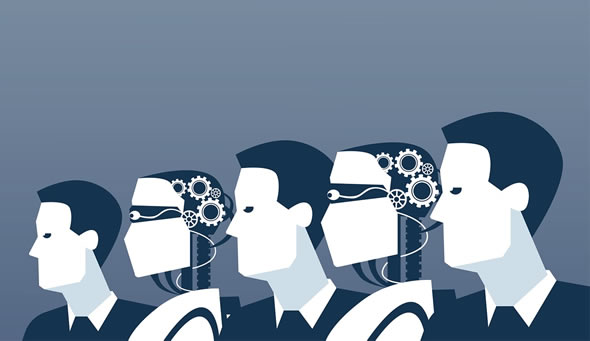
Founder’s Edition, by Joseph Neu
How finance leaders can keep their teams relevant as artificial intelligence transforms the world of work.
Jack Ma and Elon Musk created buzz last week debating at the World Artificial Intelligence Conference in Shanghai. And with Labor Day now behind us, this is a good time to think about how AI will change the work done by finance professionals.
On the plus side, Mr. Ma, the Alibaba chairman and co-founder, claims AI will create more personal time:
- A 12-hour work week. With AI, people should work three days a week, four hours a day, according to Mr. Ma. “I think that because of artificial intelligence, people will have more time to enjoy being human beings,” he said.
The danger, says Tesla and SpaceX CEO Elon Musk, is that AI may have no need for us:
- Smarter than humans. Mr. Musk said that the biggest problem with AI is that humans will not be able to keep up. “I think generally people underestimate the capability of AI – they sort of think it’s a smart human,” he said “But it’s going to be much more than that. It will be much smarter than the smartest human.”
How quickly AI is taking over the finance function will be a topic for NeuGroup meetings this fall, as we examine the future of finance talent and the role of AI in it.
To help prepare, I turned to “Exponential Organizations,” a best-selling book by Salim Ismail, the founding executive director of Singularity University and co-founder and chairman of OpenExO, which connects professionals with organizations seeking exponential growth. He argues that companies that adopt certain key attributes will tap digitalization to grow their businesses exponentially, much like Moore’s Law drove microchips.
- AI accounting and transaction management. Mr. Salim says AI will influence accounting and transaction activities to include automatic AP and AR, with software-enabling automatic reminders and payment, automatic tax management, and AI watching for errant behaviors in transaction flows.
- Everything is a transaction. But AI will not stay in the back office: “Note that pretty much everything in the modern world is a transaction, be it communications, social agreements, and, not least, commerce.”
So what will be left for humans to do?
- Humans are needed for less logical, human pursuits. As Jack Ma emphasized, AI is unsurpassable at things that have a logic to them, but humans may be needed for the things that don’t. Interacting with other people successfully (lovingly) is something that is often irrational and where we still work best.
My thinking: If AI and other machine automation will give us more time to become more human, then we also will have more time to interact with one another and learn to do it better. As AI takes over more transactions, finance leaders should encourage their teams to engage in more human interactions and build skills based on what they learn in those exchanges—to ensure finance supports a broader human purpose. With that in mind, even as AI’s power grows, our work at NeuGroup—thankfully—has a future.


